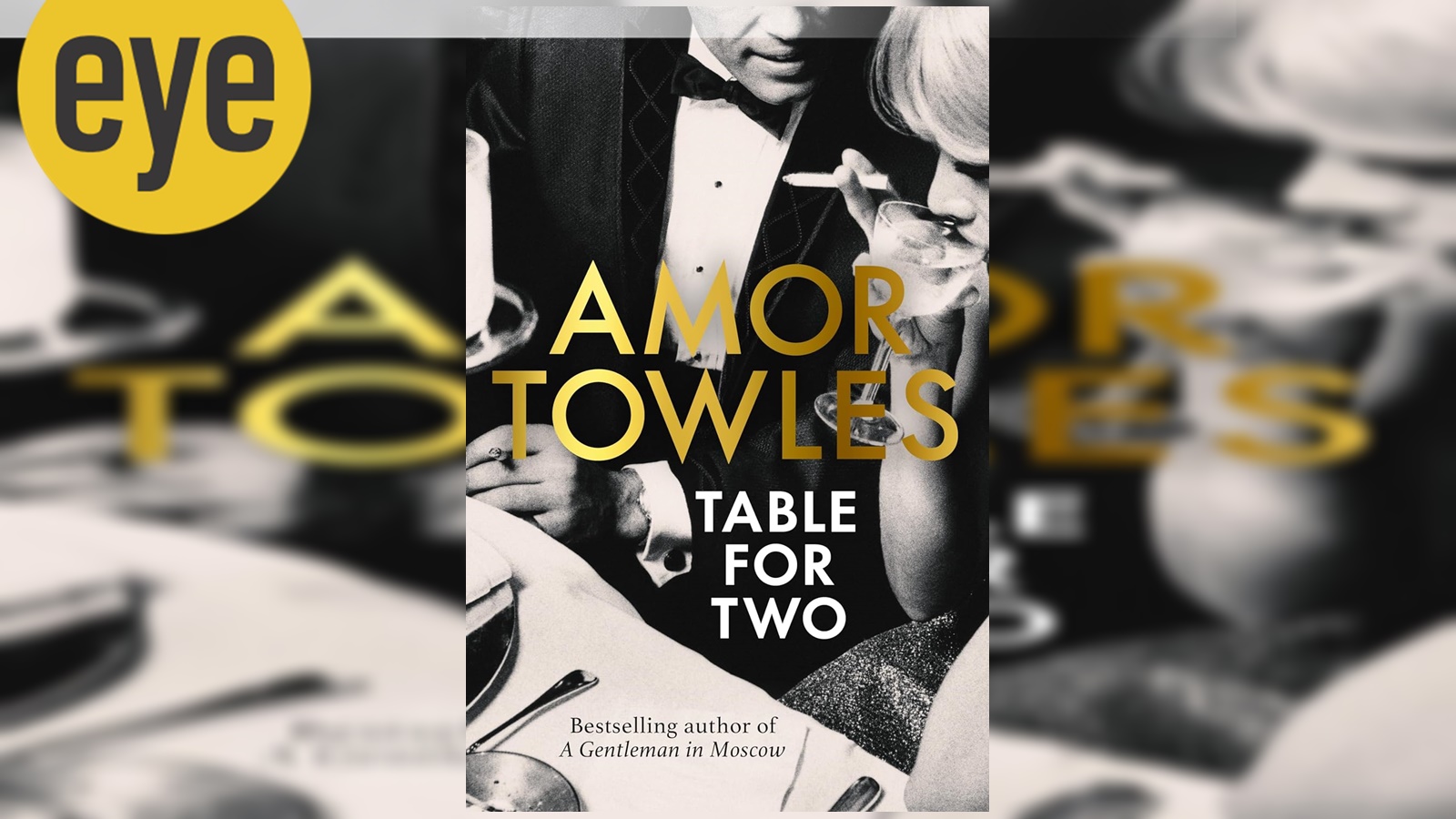Amor Towles’s Table for Two is a hat tip to nostalgia, betrayal and the writer’s angst
Towles has keenly observed the desires of the rich which allow indulgence but seldom bring happiness
 Book jacket from Amazon
Book jacket from AmazonTo create a moody atmosphere that immerses one into the illusions of a bygone era is a lot harder in a short story than the familiar tropes employed in film noir. Writer Amor Towles skillfully used the same essential elements — of dark alleyways where shadows play tricks and femme fatales rule — in my favourite of his previous novels, A Gentleman in Moscow. A charming book about a count’s heroic exploits while imprisoned in a hotel during Stalin’s reign, it was a subtle examination of the brutality of gulags and collectives, conveyed with an optimistic air.
Similarly, Towles’s latest offering, Table for Two: Fictions, is a collection of seven stories reflecting some of the unwieldy periods and cultural signposts of the 20th century. The title alludes to romance; the stylish black-and-white cover features the profile of a well-dressed couple, deep in conversation. Towles has been a keen observer of the desires of the rich whose plush existence allows them to indulge their ennui but doesn’t quite guarantee happiness. Interior lives, alas, are seldom well-ordered. These stories are less about the sparkle of rose-tinted love and more about the compromises required to hold on to it.
In the first section set in New York, its distinct characters, some wealthy, some strivers, bring historical settings to life in elegant prose. ‘I Will Survive’ surveys the uncomfortable situation that arises post a wife’s intense suspicions when she discovers her husband is lying about attending his weekly squash game. Consumed by an overarching fury, a sense that her entire life was one giant lie, she internalised the many painful facets leading to her two marriages and divorce: “She felt cheated by the implicit promises of her youth. Cheated by institutions like Smith College, the Episcopal Church, and Jane Austen, each of which openly celebrated the sacrament of marriage. Ultimately, cheated by Life, which had forced her to endure the scandal, the loneliness, the indignities of marital collapse—even as less-deserving women all around her exuded a sense of moral superiority secured by an untarnished union.” Despite having everything, her world fell apart. The mood switched suddenly, like a thunderous black cloud drifting onto an azure blue sky.
Choices and consequences are never straightforward, likely to reveal themselves slowly and most unexpectedly, as displayed in ‘The Ballad of Timothy Touchett’. A young, well-educated man determined to make it as a celebrated novelist moves to New York and gears up for inspiration to strike. Towles gets into the head of a writer expertly, detailing the agonising self-doubt and the fear all writers have that’s almost too terrible to bear—that they have no story to tell. In a few delightful paragraphs, the problem of being born to the proverbial silver spoon is thoughtfully considered. Would Dostoevsky have written Crime and Punishment if he hadn’t been sent to Siberia for his political views? “How could one expect to craft a novel of grace and significance when one’s greatest inconveniences had included the mowing of lawns in spring, the raking of leaves in autumn, and the shoveling of snow in winter?” Indeed, it was Marcel Proust who noted, Happiness is beneficial for the body but it is grief that develops the powers of the mind. Perhaps, a lucky few are blessed with JK Rowling’s imagination, otherwise the best narratives emerge from hardship and surreal experiences. And ambition thwarted by talent (or lack of) can play havoc with our value systems. It’s an all-too-realistic premise that failed storyteller Touchett, held back by his cushioned childhood, takes to forging legendary authors’ signatures instead.
In the latter half of the book, the big city intrigue shifts to Los Angeles. ‘Eve in Hollywood’ follows the fearless Evelyn Ross, a character from Towles’ Rules of Civility on her escapades with an eclectic crew of people she befriends along the way. Slim and blonde, she sashays through nightclubs, holding her own amid a band of villains, one of whom is a former cop with a clever plan for a double cross. This narrative isn’t as neatly woven as the rest; elaborate backstories are suddenly introduced to clear up plot confusion. When nude images of Olivia de Havilland go missing, the reader knows Towles is enjoying himself immensely, referencing films from the Golden Age of Hollywood, noir classics like The Postman Always Rings Twice. For these long, blazing days of an endless summer Table for Two delivers, by bringing that lost time back to glorious life.
The writer is director, Hutkay Films
- 01
- 02
- 03
- 04
- 05































